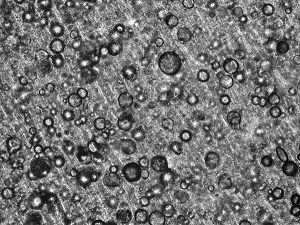A New Addition to Tosaf’s Anti-Block Masterbatch Portfolio
Tosaf now offers two anti-block masterbatches for the extrusion of polycarbonate corrugated sheets
Providing Top-Level Service for the PC Sheet Industry
Polycarbonate (PC) sheet manufacturing is a growing global industry. PC sheets are used for a variety of applications, and can be found extensively in football stadiums, train stations, swimming pools, gas stations and many other public facilities.
Tosaf provides the global PC sheet industry with expert service, and most of Tosaf’s polycarbonate masterbatches and compounds are designed for the production of PC sheets (solid sheets, multi-wall sheets and corrugated sheets) via an extrusion process.
Addressing Corrugated Sheet Stickiness
Anti-block additives are normally associated with the film industry. Yet unlike the film industry, using anti-block additives isn’t a common occurrence in the PC sheet industry. The reason is simple: anti-blocks are not required for solid sheets or multi-wall sheets. These two sheet types are quite thick and are also protected by protective film from both sides. Therefore, no sticking problem is developed during the extrusion of solid or multi-wall sheets.
The situation is much different when it comes to the production of corrugated sheets. The standard thickness of corrugated sheets (only 0.8mm) is very thin compared to multi-wall or solid sheets. In addition, corrugated sheets are not protected with protective film, because it is very difficult to apply the film on the corrugated structure. As a result, electrostatic charges generated during the sheet extrusion strongly stick the sheets together when they are stacked one on top of each other.
Corrugated sheets are only 0.8 mm thick and do not include protective films. This leads to a sticking problem when the sheets are stacked one on the top of the other.
The Solution to Corrugated Stickiness – Introducing MB: AB8937PC
Tosaf strives to develop new and innovative additives that address common industry problems, while also improving current solutions. Corrugated sheet producers yearn for a solution that can effectively block sheet stickiness, and Tosaf’s R&D team have embraced this challenge. While Tosaf’s current anti-block additive (AB7774PC) does address corrugated sheet stickiness, a new solution was required for high-capacity conditions with extreme temperatures and high shearing rates.
As a result, Tosaf recently completed the development of a second anti-block named MB: AB8937PC. Together with Tosaf’s current anti-block additive (AB7774PC), the new MB provides a wide solution for all corrugated sheet producers, which may apply to different processing conditions during the extrusion of corrugated sheets. Both masterbatches use the same mechanism that is used in the film industry, which creates asperities (i.e. “little bumps”) that help minimize sheet-to-sheet surface contact. As a result, the distance between the two surfaces is increased, thereby minimizing blocking.

Microscope picture of corrugated sheet surface with anti-block – Tosaf laboratories
Tosaf Ingenuity in Action
Although the anti-block solution mechanism is well known throughout the industry, implementing a satisfactory solution for the corrugated PC sheet industry is not a straightforward process. The main reason has to do with the fact that the active particles’ average size requires optimization. Particles that are too big can interfere with the product’s optical properties. Particles that are too small will simply not do the job. In addition, in order to maintain the original optical properties without increasing the haze, the anti-block additive must include a refractive index (RI) that is as close as possible to the polycarbonate (1.58).
Both of the above parameters were taken into consideration during the design and development of AB7774PC and AB8937PC masterbatches. Tosaf was able to optimize the size of the active particles, while also creating products that include a neglected impact on the product haze and transparency.An anti-block additive on the corrugated sheet surface. The particles create the desired asperities properties in order to avoid sticking. (Tosaf laboratories)
Additional Important Information
- Both of Tosaf’s anti-block additives are very cost-efficient for sheet producers. The reason is their very low usage level.
- In order to achieve a good anti-blocking property, it is recommended to dose the masterbatch in around 1% – 2% in the UV cap layer. If the UV cap layer is in average 40μ thick, this means that in the total sheet the usage level is only 0.05%.
- The difference between Tosaf’s two anti-block MBs is in their thermal stability. In general, it is be recommended to use the AB7774PC. But for sheet manufacturers that work at a high capacity – and therefore their processing condition are more severe in term of temperature and shearing rate – it is recommended to use the AB8937PC.
For more information, please contact:
Gabi Bar – Polycarbonate Product Manager: Tel: +972-54-5663319 | [email protected]
